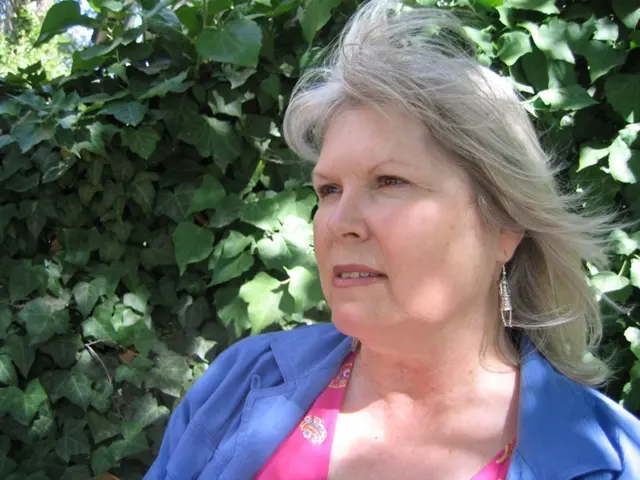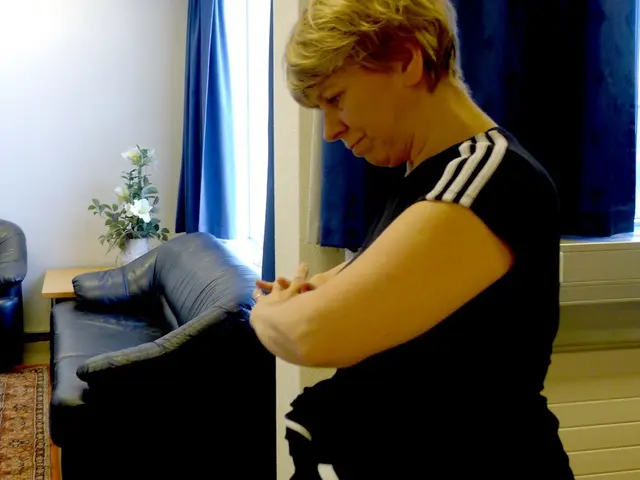Exercise and the Elderly Brain: Fewer Than Five Minutes of Activity May Promote Cognitive Health
Flexing Your Grey Matter: 5 Minutes of Daily Exercise Keeps the Brain Sharp as You Age
As the years roll by, our brains undergo changes that can lead to cognitive decline. They shrink in size, production of neurotransmitters decreases, and the outer layer becomes thinner. But fear not! There are ways to keep those grey cells up and running.
Older adults who prioritize being physically active can potentially ward off cognitive issues, according to a boatload of past studies. Recently, a new study claimed that you don't need to spend hours at the gym — as little as 5 minutes of moderate-to-vigorous physical activity could help maintain brain health [1].
This mini workout could boost your processing speed, working memory, and executive function, compared to older adults who spend less time active during the day [1]. So, what constitutes a workout worth your while? Think along the lines of jogging, brisk walking, swimming, cycling, playing tennis, or dancing [1].
"As we age, it's essential to understand the connection between day-to-day activities such as sleep, sedentary behavior, and physical activity and their impact on our cognitive function," explained Audrey M. Collins, PhD, co-lead author of the study [1]. "Our research reveals that the way time is used across the 24-hour day may be differentially related to cognitive function in late adulthood."
The study analyzed health data from more than 500 older adults between the ages of 65 to 80 who participated in the U.S.-based IGNITE study. Researchers examined the relationship between a person's sleep, sedentary time, light physical activity, and moderate-to-vigorous physical activity, and their cognitive performance [1].
The results were impressive: Participants who spent more time performing daily moderate-to-vigorous physical activity had significantly better processing speed, working memory, and executive function than those who spent less time [1]. The biggest cognitive gains came from those who went from being inactive to doing at least 5 minutes a day.
"The significance of this finding is that we confirm the way in which time is used across the 24-hour day may be differentially related to cognitive function in late adulthood. This means that time spent in moderate-to-vigorous physical activity may not influence all domains of cognitive function uniformly, but even small increases of moderate-to-vigorous physical activity may be favorable," added Collins [1].
While it's already clear that being physically active even in late adulthood can promote brain health, further research is needed to delve into how this transformation happens in the brain, as well as to develop guidelines for public health and dementia prevention [1]. Older adults with physical limitations need special attention, too, as they might struggle to engage in rigorous physical activity due to conditions like arthritis [4].
The study highlights the importance of sneaking in at least 5 minutes of moderate-to-vigorous activity into your day, every day. Aim for a few sessions per week, lasting up to 40 minutes, for optimal cognitive improvements [2]. So listen to your brain — heck, give it a spin!
- Seniors who prioritize fitness and exercise, however minimal, through activities like jogging, brisk walking, swimming, cycling, playing tennis, or dancing, may potentially ward off cognitive issues related to aging and longevity.
- Aging and longevity studies suggest that general health, including fitness, can significantly impact neurology, with as little as 5 minutes of moderate-to-vigorous physical activity each day potentially boosting processing speed, working memory, and executive function.
- Health-and-wellness experts and scientists agree that understanding the link between sleep, sedentary behavior, physical activity, and aging is crucial to maintaining optimal brain function.
- In a recent study, researchers found that older adults who spent more time performing daily moderate-to-vigorous physical activity experienced better cognitive performance, particularly in areas like processing speed, working memory, and executive function.
- Aging seniors, even those with physical limitations, can benefit from incorporating fitness-and-exercise routines into their daily lives to combat issues related to obesity, cognitive decline, and conditions like Alzheimer's, as science continues to uncover the benefits of a healthy lifestyle on brain health.








